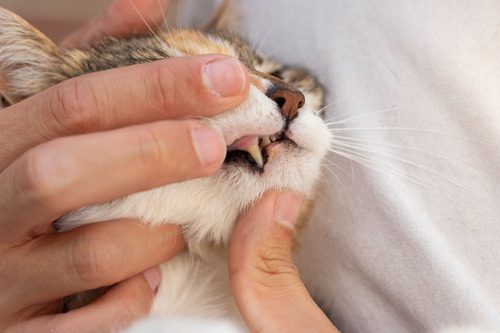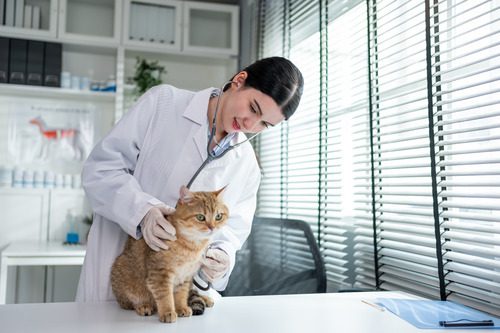Protecting Your Pet From Fleas, Ticks & Heartworms
Parasites like fleas, ticks, and heartworms are not just minor nuisances—they pose serious health risks to your pets. Each of these pests can cause significant harm and discomfort to animals, and, in some cases, the diseases they carry can be life-threatening. Effective flea, tick, and heartworm prevention is not just about keeping your pet comfortable; it’s about safeguarding their health and longevity. Let’s dive into the dangers posed by these parasites and the steps you can take to protect your beloved pet.

Flea Infestations: More Than Just an Itch
The Lifecycle and Impact of Fleas
Fleas are incredibly adept at making a home on your pets. A single flea can lay up to 50 eggs a day, turning a small problem into a full-blown infestation in a matter of weeks. These tiny pests feed on blood, causing irritation, allergic reactions, and potential skin infections. Pets with flea allergies may experience severe itching, red skin, and hair loss.
Secondary Problems Caused by Fleas
Beyond the direct discomfort they cause, fleas can also be vectors for several diseases, such as tapeworms and cat scratch disease. The presence of fleas can even lead to anemia in severe cases, especially in young or small pets. This highlights the importance of timely and continuous flea prevention measures.
Ticks and Their Hidden Dangers
Ticks are another perilous pest, known for transmitting diseases like Lyme disease, Rocky Mountain spotted fever, and ehrlichiosis. These diseases can have a profound impact on your pet’s health, leading to symptoms ranging from fever and lethargy to more severe complications like kidney failure or chronic joint pain.
Best Practices for Tick Prevention
Regular use of tick preventative products is crucial, especially if you live in areas known for tick exposure. Additionally, regular checks of your pet’s coat, especially after walks in wooded areas, can help catch and remove ticks before they have a chance to transmit disease.
How Heartworms Harm Your Pet
Heartworms are transmitted by mosquitoes and can be deadly if not treated. These parasites live in the heart and lungs of infected animals, causing heart failure, severe lung disease, and damage to other organs. The treatment for heartworm disease can be lengthy and costly, emphasizing the importance of prevention.
Effective Heartworm Prevention Strategies
The best way to protect your pet from heartworm disease is through regular, year-round preventive medications. These medications are available through your veterinarian and can be administered as pills, topicals, or injections.
Comprehensive Parasite Prevention Plan
A comprehensive approach to parasite prevention is essential for your pet’s health. This involves using integrated products that offer protection against fleas, ticks, and heartworms. Speak with your veterinarian about the best products suited for your pet’s specific needs and lifestyle.
Regular Veterinary Check-ups
Regular check-ups at Cornerstone Veterinary Hospital of Clifton Park are vital in maintaining your pet’s health and ensuring the effectiveness of your parasite prevention strategy. During these visits, your veterinarian can also provide additional insights and updates on the latest preventive products. To learn more about flea, tick, and heartworm prevention, or to schedule a check-up for your pet, call us today at (518) 383-6254. Protecting your pet from these dangerous parasites is a crucial step in ensuring they lead a healthy, happy life.
Recent Posts
My Cat Lost a Fang Tooth: What Do I Do?
My Cat Lost a Fang Tooth: What Do I Do? It’s always a little jarring to discover…
FHO Surgery in Cats
FHO Surgery in Cats When a cat experiences hip pain that limits movement and quality of life,…
Can Cats Get Parvo?
Can Cats Get Parvo? Parvo is a word that strikes fear into the hearts of many dog…
About Us
Originally opened as Animal Care Hospital by Dr. Mark Johnston in 1989, the hospital became Cornerstone Veterinary Hospital in 2015 when it was purchased by Drs. Alan and Lisa Knott. The name 'Cornerstone' holds a special place in their hearts, representing not only their Christian faith but also their commitment to being the cornerstone of the community in which they practice. As a family-owned and operated practice, every pet is treated as part of the family, ensuring they receive the highest standard of care. The team at Cornerstone Veterinary Hospital is dedicated to building lasting relationships with clients and their beloved pets, striving to be the cornerstone of the community in which they practice.



